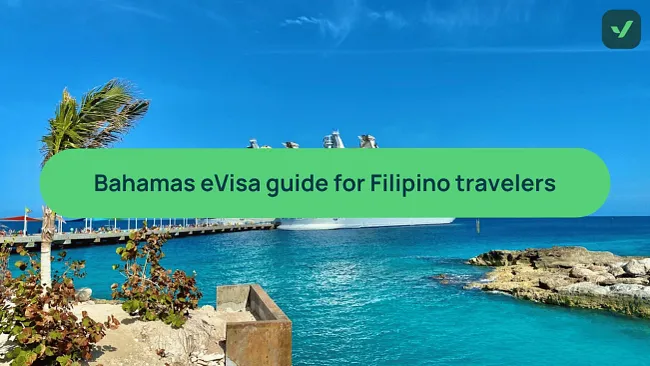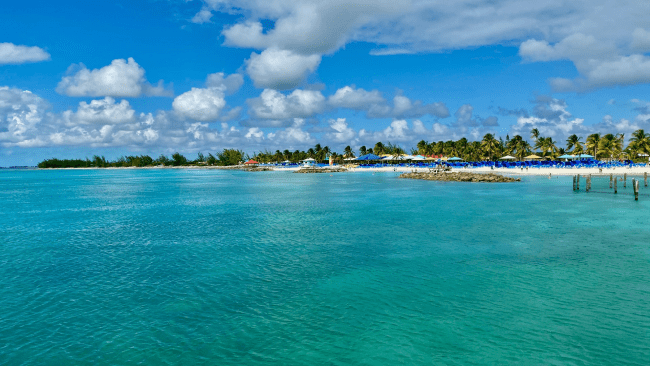
Bahamas
Welcome to Bahamas
Wondering if you need a visa for The Bahamas? Look no further. This blog will help you figure out whether you require a visa and identify the right one for your trip's purpose. We aim to make obtaining your Bahamian visa as simple as possible, allowing you to focus more on planning your exciting journey to The Bahamas.
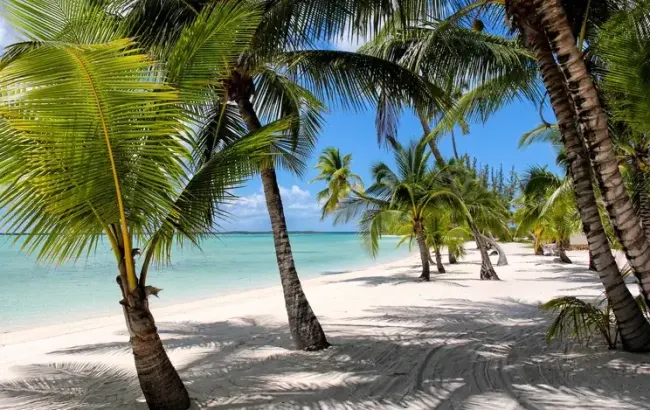
What’s a Bahamas Visitor Visa and who’s it for?
Who’s The Bahamas Visitor Visa for?
Nationals from more than 70 countries who need to apply for a visa before entering the country, including those from Afghanistan, Cambodia, Cuba, Egypt, the Dominican Republic, India, Saudi Arabia, and more.
Find out if you need to apply for The Bahamas Visitor Visa with the Visa Checker Tool.
Who’s not eligible for a Bahamas Visitor Visa?
-
Citizens from over 100 countries who don’t require a visa to enter The Bahamas, including Argentina, Australia, Brazil, China, France, the USA, the United Kingdom, and more.
-
Indian nationals who have visas for the US, the UK, Canada, and the Schengen countries, or who have permanent resident status in these nations.
What’s the purpose of The Bahamas Visitor Visa?
The Bahamas Visitor Visa allows for a range of activities, including:
-
Tourism and sightseeing.
-
Visiting family and friends.
-
Participating in business meetings and conferences.
-
Engaging in short-term educational activities.
-
Attending cultural or sports events.
How long can you stay with a Bahamas Visitor Visa?
The single-entry visa is valid for 90 days after arriving in The Bahamas, while the multiple-entry visa is valid for 12 months after arriving in the country.
What’s a Bahamas Seaman’s Visa and who’s it for?
Who’s The Bahamas Seaman’s Visa for?
Maritime professionals such as sailors and cruise ship staff who need to enter The Bahamas as part of their work.
It's intended for crew members on vessels either registered in The Bahamas or passing through its territorial waters.
What’s the purpose of The Bahamas Seaman’s Visa?
The visa facilitates the entry and transit of maritime workers for purposes including:
-
Joining a ship docked in The Bahamas.
-
Transiting through The Bahamas to board a ship in another country.
-
Disembarking from a vessel in The Bahamas for onward travel or return to their home country.
How long can you stay with a Bahamas Seaman’s Visa?
The single-entry visa is typically valid for 90 days after arriving in The Bahamas, while the multiple-entry visa is valid for either three months, six months, or one year, depending on the duration of stay granted.
What’s a Bahamas Diplomatic/Official Visa and who’s it for?
Who’s The Bahamas Diplomatic/Official Visa for?
Diplomats, government officials, and international organization representatives who are traveling to The Bahamas for official duties or diplomatic missions.
This includes those attending conferences, meetings, or any formal engagements on behalf of their government or international organization.
What’s the purpose of The Bahamas Diplomatic/Official Visa?
The visa is intended to facilitate official international travel and diplomatic missions, including:
-
Participation in international meetings, conferences, or diplomatic engagements.
-
Official governmental duties or assignments.
-
Representation of a country or international organization in formal events or discussions.
How long can you stay with a Bahamas Diplomatic/Official Visa?
The single-entry visa is typically valid for 90 days after arriving in The Bahamas, while the multiple-entry visa is valid for either three months, six months, or one year, depending on the duration of stay granted.
What’s a Bahamas Transit Visa and who’s it for?
Who’s The Bahamas Transit Visa for?
Travelers who need to pass through The Bahamas en route to another destination and require leaving the airport during a layover.
What’s the purpose of The Bahamas Transit Visa?
This visa allows for a short stay for those connecting flights or ships and needing to temporarily enter The Bahamas.
How long can you stay with a Bahamas Transit Visa?
This visa allows you to stay in the country for 24 hours.
What are the Bahamian long-term visa options and who are they for?
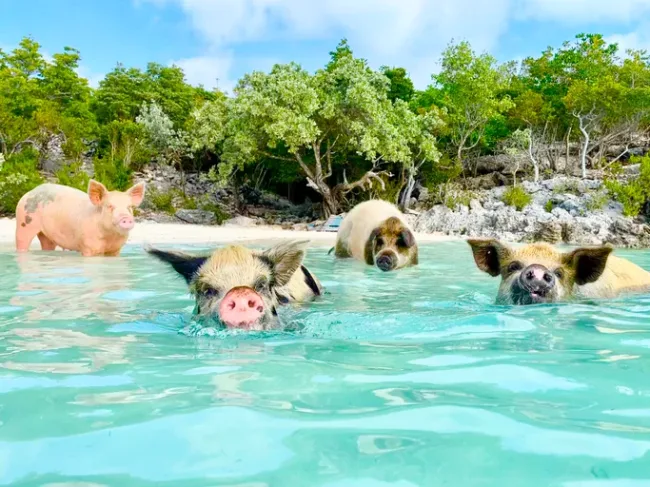
The Bahamas offers several long-term visa options catering to a variety of needs, from work commitments to those looking to enjoy an extended stay in this beautiful archipelago. Here's a brief overview of common long-term visas.
-
Work permit: Ideal for individuals planning to work in The Bahamas for durations exceeding 90 days.
-
BEATS (Bahamas Extended Access Travel Stay): A unique one-year residency permit that enables professionals and students to remotely work or study from The Bahamas, blending work or academic responsibilities with the exploration of the islands.
-
Permanent residence permit: This option is for individuals seeking to make The Bahamas their long-term home.
-
Bahamas Digital Nomad Visa: Aimed at remote workers and digital nomads, this visa allows individuals to live in The Bahamas while working for an employer or clients outside the country.
-
Residence Permit: For those who don’t necessarily want to work in The Bahamas but wish to reside there for longer periods, the residence permit offers a solution.
While we focus on simplifying the visa application process for short-term trips, we currently don’t handle these long-term visa applications. For detailed information, requirements, and application processes for long-term stays in The Bahamas, it's best to visit the Bahamas Ministry of Foreign Affairs website.
Staying healthy in The Bahamas: Here’s what you need to know
When planning a trip to The Bahamas, it's essential to consider your health to ensure a smooth and enjoyable visit. To make the most of your stay, here’s a breakdown of health advice, focusing on vaccinations and other precautions.
Make sure to stay updated on routine vaccines
Before traveling to The Bahamas, make sure you're up to date with routine vaccinations such as measles-mumps-rubella (MMR), diphtheria-tetanus-pertussis, varicella (chickenpox), polio, and your yearly flu shot.
The following vaccines are recommended for international visitors:
-
Hepatitis A: Advised for most travelers, especially if unvaccinated, due to the risk from food and water.
-
Hepatitis B: For those who might be exposed to blood or body fluids, get medical treatment, or have new sexual partners.
-
Tetanus: Recommended if you're not already vaccinated, given the risk from wounds or breaks in the skin.
-
Yellow fever: Required if traveling from a country with a risk of yellow fever transmission.
-
Rabies: Considered for long-stay travelers or those who might come into contact with animals.
-
Stay informed about Bahamas’s COVID-19 guidelines, including any requirements for quarantine, testing, or vaccination proof, by consulting your airline or the Ministry of Health website.
Medical facilities
The Bahamas offers a mix of public and private healthcare services that are generally considered to be of high quality.
-
The public healthcare system operates 28 health centers, 33 main clinics, and 35 satellite clinics across the main islands, ensuring basic healthcare services are widely accessible.
-
Many international travelers and those seeking specialized treatment opt for private healthcare, which can provide access to a broader range of services and specialists. The Bahamas has several private hospitals and clinics, particularly in New Providence Island.
-
Pharmacies are available, mostly in shopping centers, and require a prescription for medication purchases. Those on smaller islands may need to travel to access pharmacy services.
Health insurance
Before you set off on your travels, securing health insurance is crucial.
Healthcare, especially within private facilities, can get expensive. Ensure your insurance plan covers major costs, including emergency evacuations if necessary.
Double-check with your insurer to ensure your policy includes comprehensive protection, notably for:
-
Reimbursements for travel disruptions, including cancellations, delays, or interruptions.
-
Expenses for medical treatment and potential evacuation.
-
Compensation for lost luggage.
Things to be aware of when visiting The Bahamas
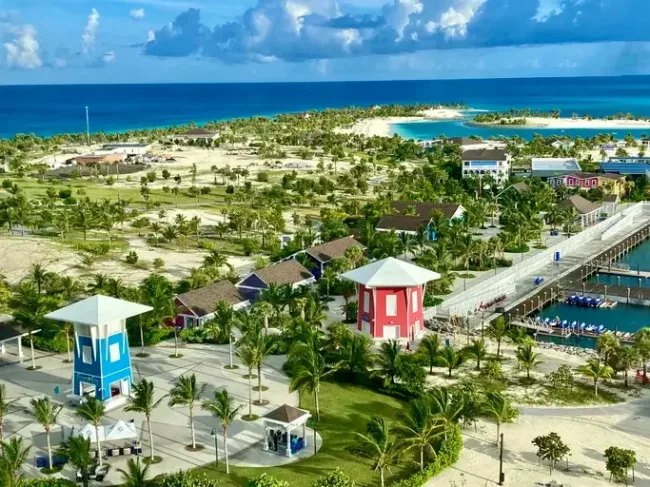
While The Bahamas is generally safe for travelers, there are a few health-related considerations to keep in mind.
-
Sun safety: The Bahamian sun can be intense. Wear sunscreen with high SPF, stay hydrated, and seek shade during peak sun hours.
-
Food and water safety: Be cautious of what you eat and drink. Opting for bottled water and avoiding raw or undercooked foods can reduce the risk of travelers' diarrhea.
-
Insect bite prevention: Dengue fever and Zika are present in The Bahamas, both transmitted by mosquitoes. Use insect repellent containing DEET or Picaridin, wear long-sleeved shirts and pants, and sleep in air-conditioned or screened rooms.
-
Natural disasters: Being in a region prone to hurricanes, it's vital to be aware of and prepared for such natural events. The impact of hurricanes can be severe, affecting access to services and infrastructure.
-
Medical emergencies: In case of a medical emergency, the numbers 919 and 911 can be used throughout The Bahamas. However, it's essential for those living on smaller islands to have plans for reaching medical facilities on the main islands, as many smaller islands have limited or no medical facilities.
Medication for personal use
For those taking medication to The Bahamas, remember these guidelines:
-
Declare all medications: It's crucial to inform customs about any medication you're carrying, especially if it's prescription or controlled.
-
Original packaging required: Keep your medication in its original container, labeled with your prescription.
-
Have a prescription or doctor's note: Bring along a doctor’s note or a current prescription explaining why you need the medication.
-
Research restrictions: Verify that your medications are not banned or strictly regulated in The Bahamas by contacting the nearest Bahamian embassy or consulate.
-
Limit your supply: To avoid any issues, carry only the amount of medication you'll need for your trip.

 Australia ETA Online
Australia ETA Online
 United Kingdom ETA
United Kingdom ETA
 India Tourist eVisa
India Tourist eVisa
 Canada ETA Visa
Canada ETA Visa
 Turkey eVisa
Turkey eVisa
 Egypt eVisa
Egypt eVisa
 Singapore SG Arrival Card
Singapore SG Arrival Card
 Indonesia eVoa Visa
Indonesia eVoa Visa
 Aruba ED Card
Aruba ED Card
